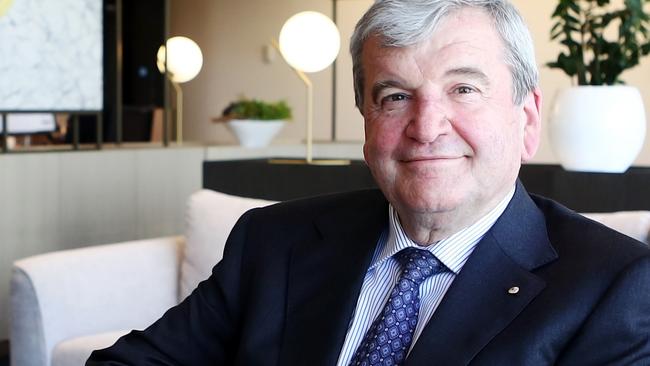The independence of the ASIC chair is worth preserving

On its face, it seems fair and reasonable that two office holders have reached agreement. Although no adverse findings were made against him, and he can return to his role, Mr Shipton has come to the view that he should step down and hand over to a new chair. This view is consistent with a person of integrity who is putting the interests of ASIC ahead of his own. It is also reasonable for the Treasurer, who is keen to protect ASIC, and possibly Treasury, to also form a view that a new chair may be in the best interests of ASIC.
It is, however, an uncomfortable result that the country loses a chair of ASIC over an episode that was determined to be no more serious than a suggestion that those involved could have done better documenting relocation expenses. (And let’s not forget the loss of a highly regarded deputy chair as well, who left notwithstanding exoneration).
Ordinarily such an agreement between two office holders could be the end of the matter and we move on. However, a note of caution. As a former ASIC chair, I can see that this precedent could, in certain circumstances, test the independence of the role of chair. The limited grounds for removal of the chair, and then by the Governor-General, are there for a reason. They are designed to prevent undue pressure on that role, whether from within or outside. Indeed, Treasurers themselves can only issue directions to the chair if the direction is gazetted. This is not to suggest the role should be without accountability, and we have that through parliamentary committees.
Public pressure on the role of the chair through the media, through politicians or others who may or may not want action taken, can be extreme. There have been countless examples of those over the years. Clive Palmer is running a campaign right now. The independence and protection of the chair by the government of the day is crucial for decision-making. I do not believe anyone would seriously question that independence, even though one may not agree with an actual decision.
This precedent opens up the possibility that a government or a committee of the parliament with oversight of ASIC, or the media, in the context of intense interest group pressure, could question the chair’s approach, comb through expense claims or their personal background and find possible misdemeanours. This possibility undermines the role and could eventually lead to “agreed” separations even though there was no basis for the allegations made. Whether it is theoretical or practical is not the issue. What is the issue is that future chairs will now know that even if there are no grounds for removal, they could find themselves in a situation where they need to step down.
In the inquiries about ASIC going forward, there are two steps I would encourage be taken. First, when appointed, the new chair should negotiate a clear process which determines how an independent body would examine any campaign which results in allegations questioning the integrity of or suggesting wrongdoing by the chair. The chair should have rights to natural justice and the resulting report should be to government and parliament. This could be written in as part of the terms of appointment and have contractual force. Secondly, the government should immediately restate and reaffirm the independence of the role of ASIC chair, including affirming that if a concern is raised about the chair and found to have no basis it would support the chair continuing to perform their full duties and complete their term. In other words, first and foremost, support the appointment whether or not the government of the day made that appointment.
I congratulate and thank Mr Shipton for his service and the way he has handled this matter. More than many others, I know the pressure the role involves and the requirement to maintain independent judgment. I also congratulate the Treasurer for handling the issue sensitively and allowing Mr Shipton to resume his duties.
I do, however, remain uncomfortable with the loss of two individuals to public service and the precedent that has now been created. No matter how remote the possibility, I would encourage protective mechanisms of the sort I have outlined be put in place.
Tony D’Aloisio AM was the chairman of ASIC between 2007 and 2011.






There was one important part of the Treasurer’s release relating to ASIC chair James Shipton on Friday that merits deeper analysis: “Mr Shipton and I have agreed that it is in the best interests of ASIC that he will step down as chairperson of ASIC in the coming months.”